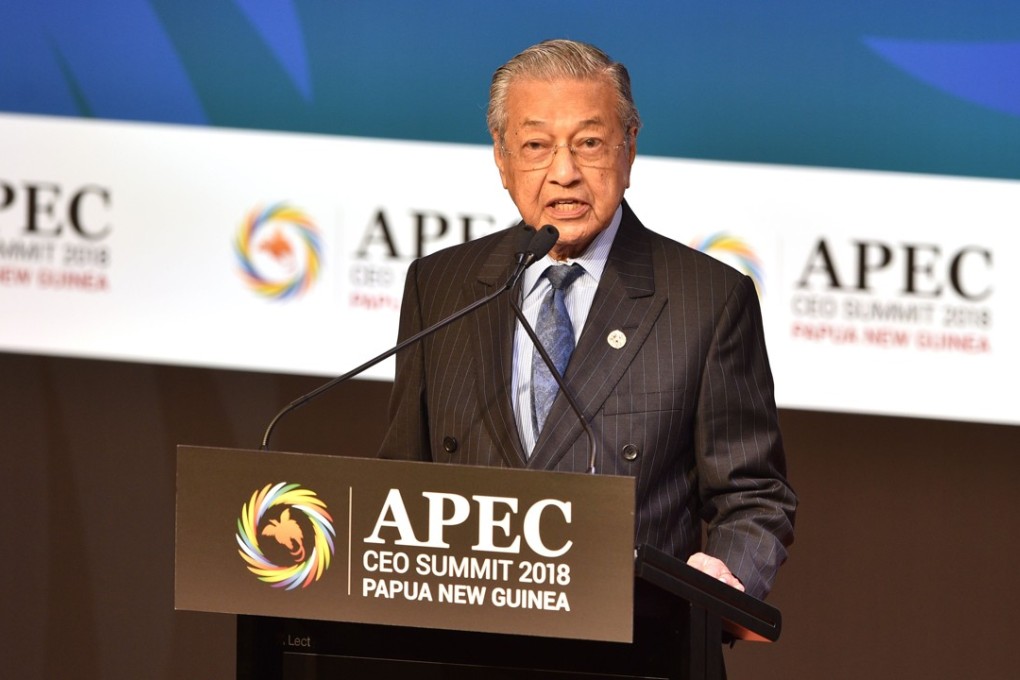Malaysia’s Mahathir hails free trade, integration amid ‘rupture’ of Brexit, US-China trade war
- Malaysian leader calls for ‘fairer’ cooperation between developed and developing nations to weather ‘age of disruption’

With Britain reeling from deepening chaos around Brexit, Malaysia’s Prime Minister Mahathir Mohamad on Saturday pointed to the precarious situation in his country’s former colonial ruler as a prime example of the “rupture” of benefits arising from unfettered free trade.
The US-China trade war is another reminder of the ongoing disruption to global trade and commerce, Mahathir said in a keynote address in a business forum on the sidelines of the Asia-Pacific Economic Cooperation (Apec) summit in Papua New Guinea.
“We have gone too far in free trade and economic integration to let them go under in this age of disruption,” the 93-year-old leader said in his speech.
Appearing at Apec for the first time since a shock election victory in May saw him return to the leadership he held from 1981 to 2003, Mahathir told world leaders at the forum that the 21-economy body needed to move more quickly to deal with current economic uncertainties.
“What is worrying is not the strategy but the speed it is required to be implemented in order to be effective,” said the elder statesman.